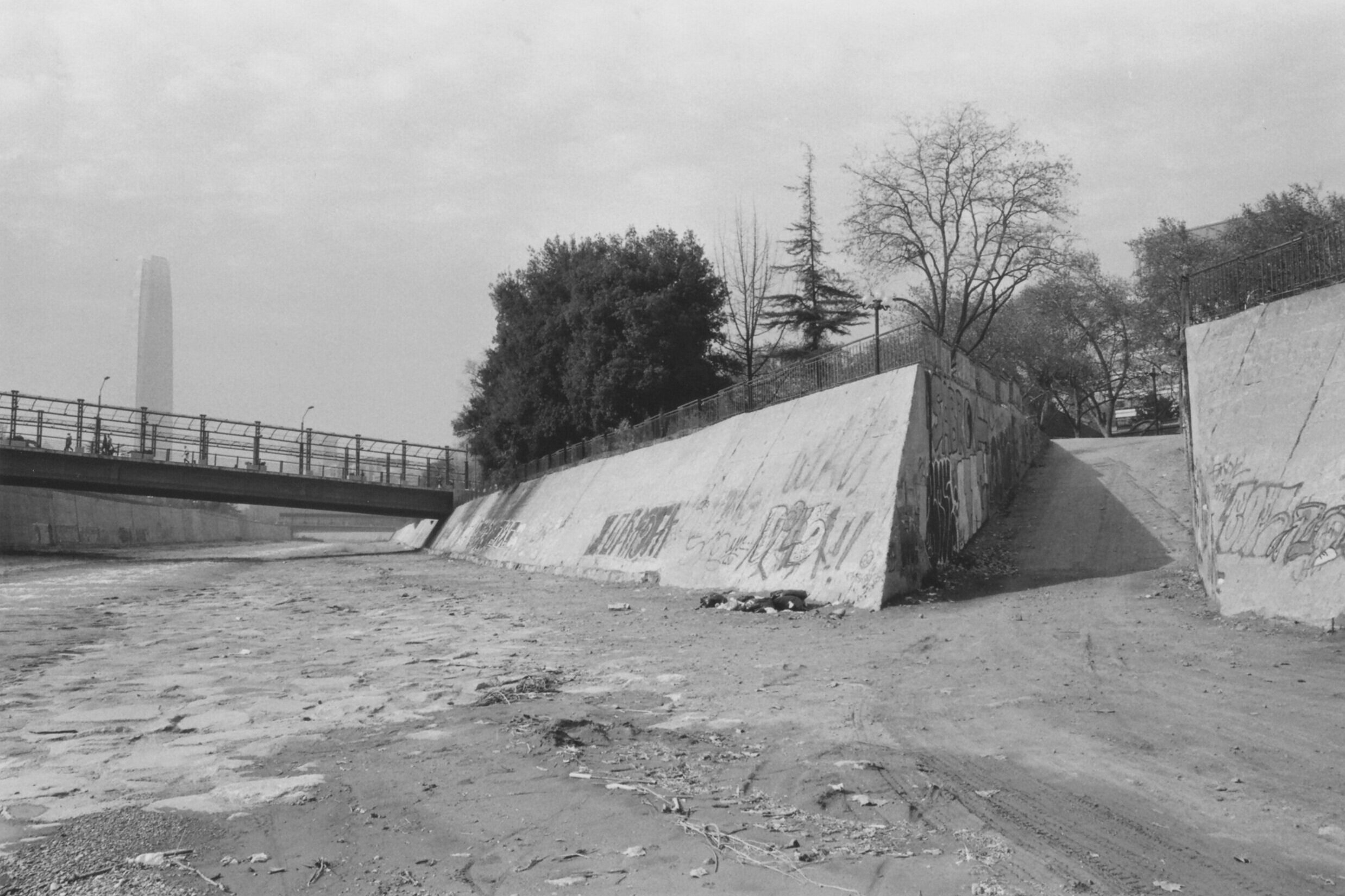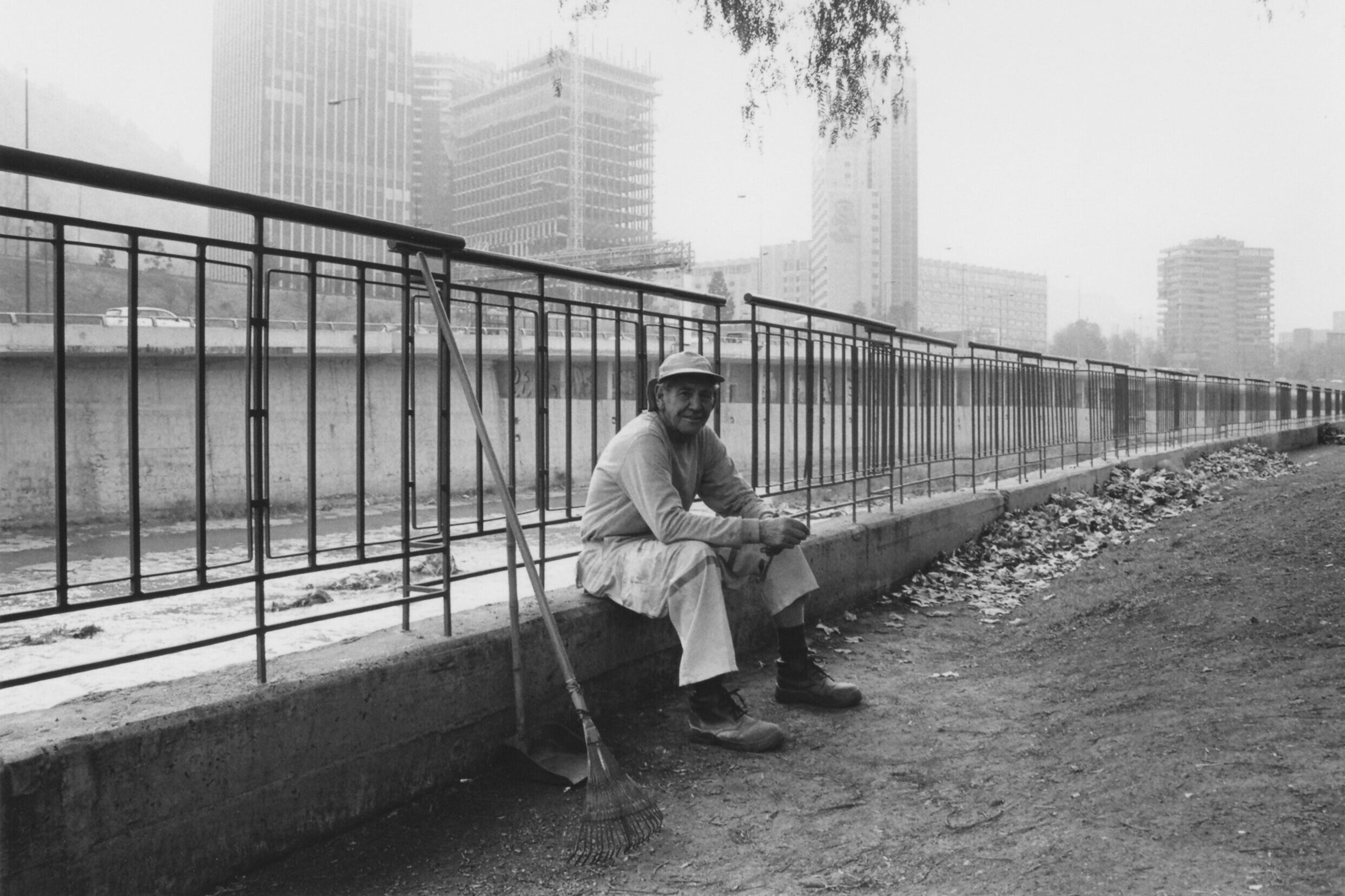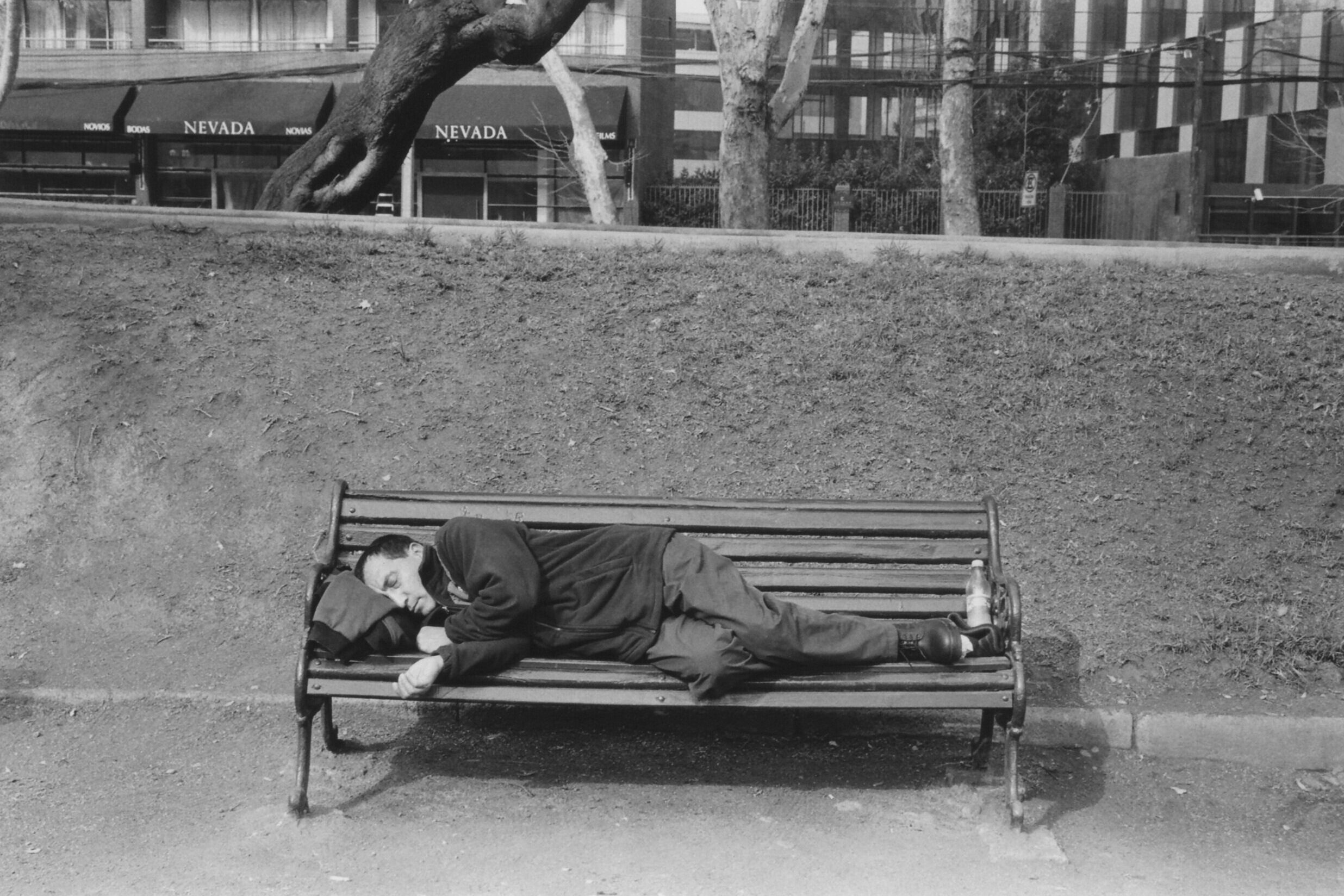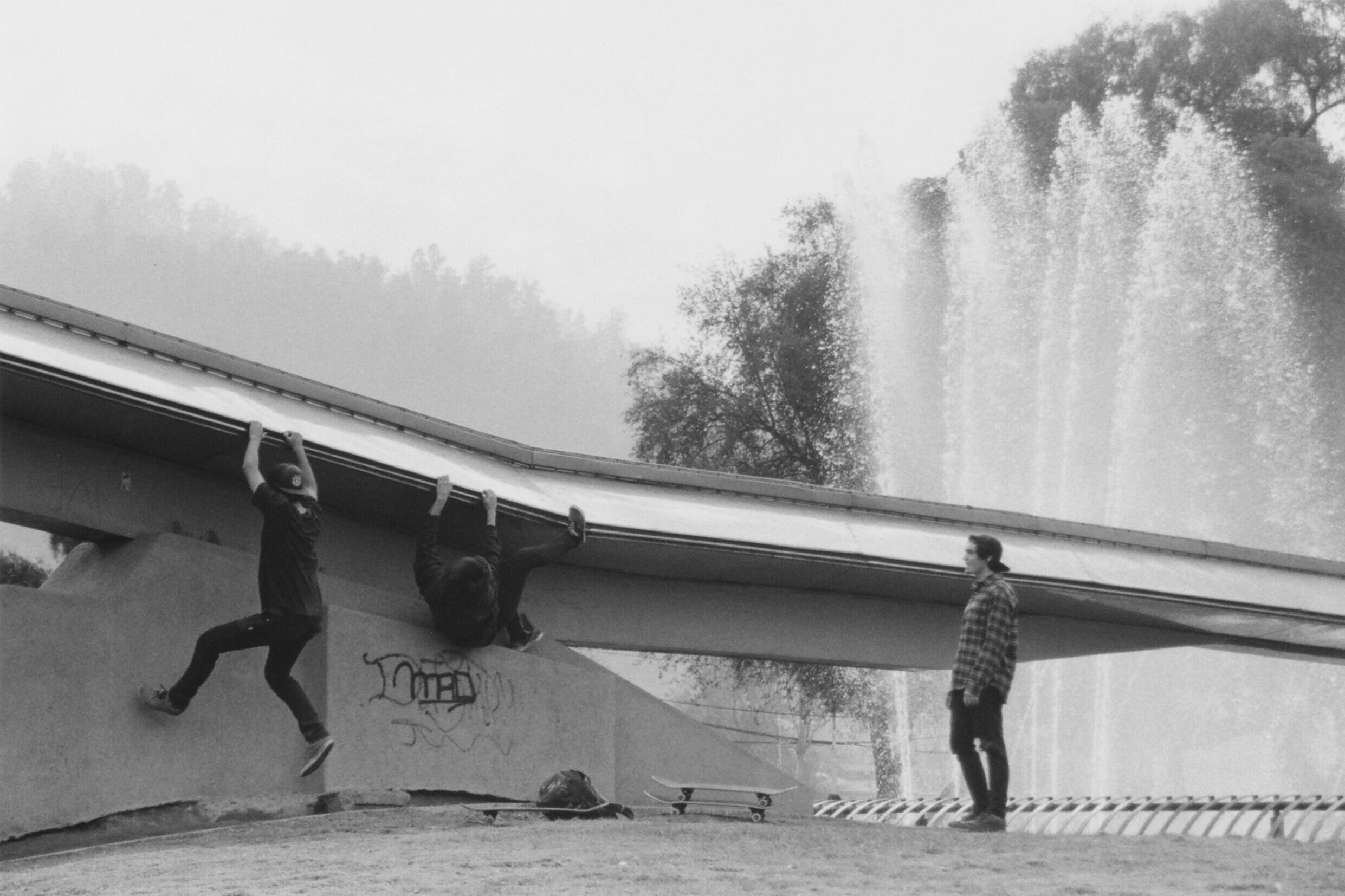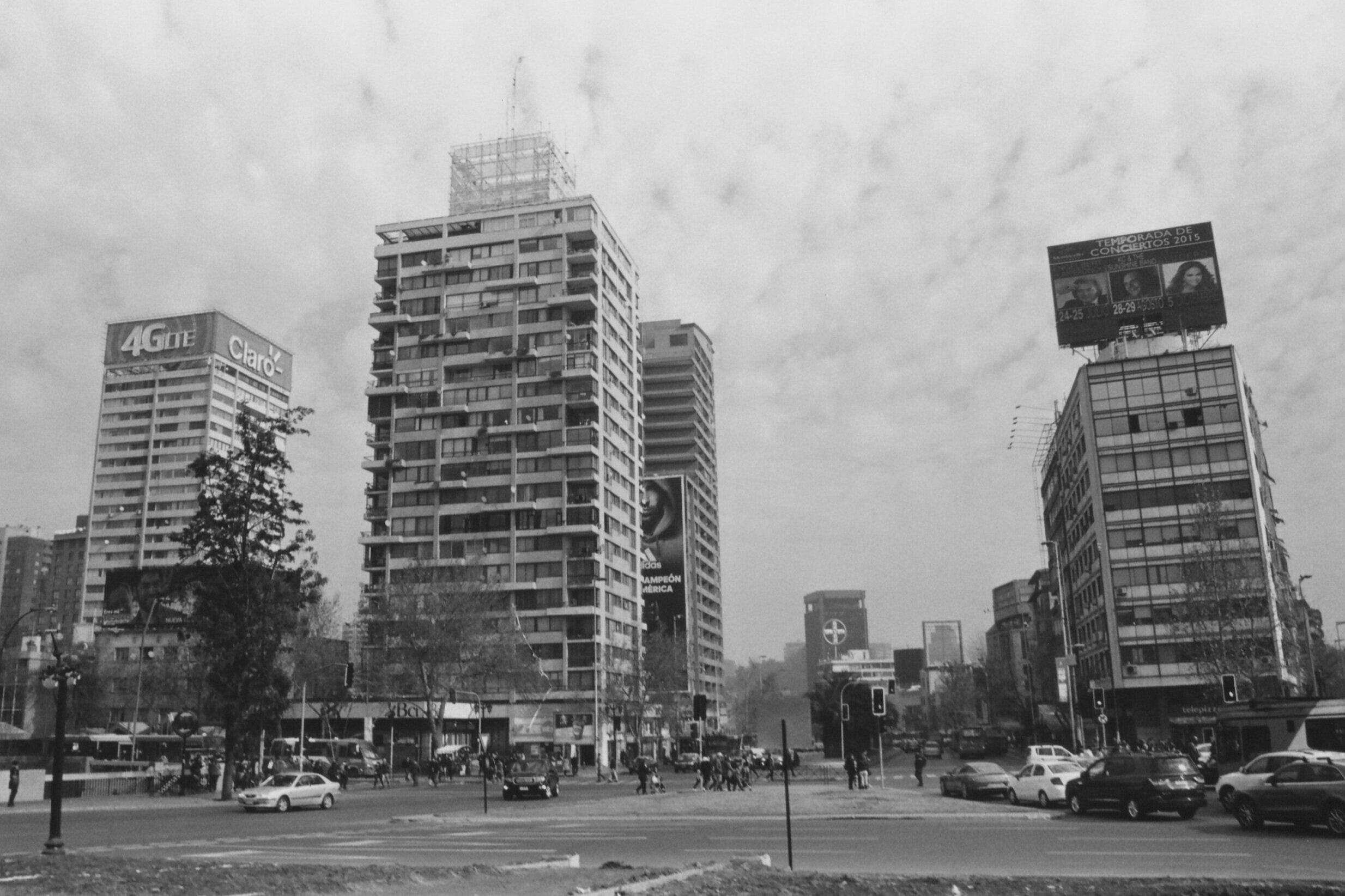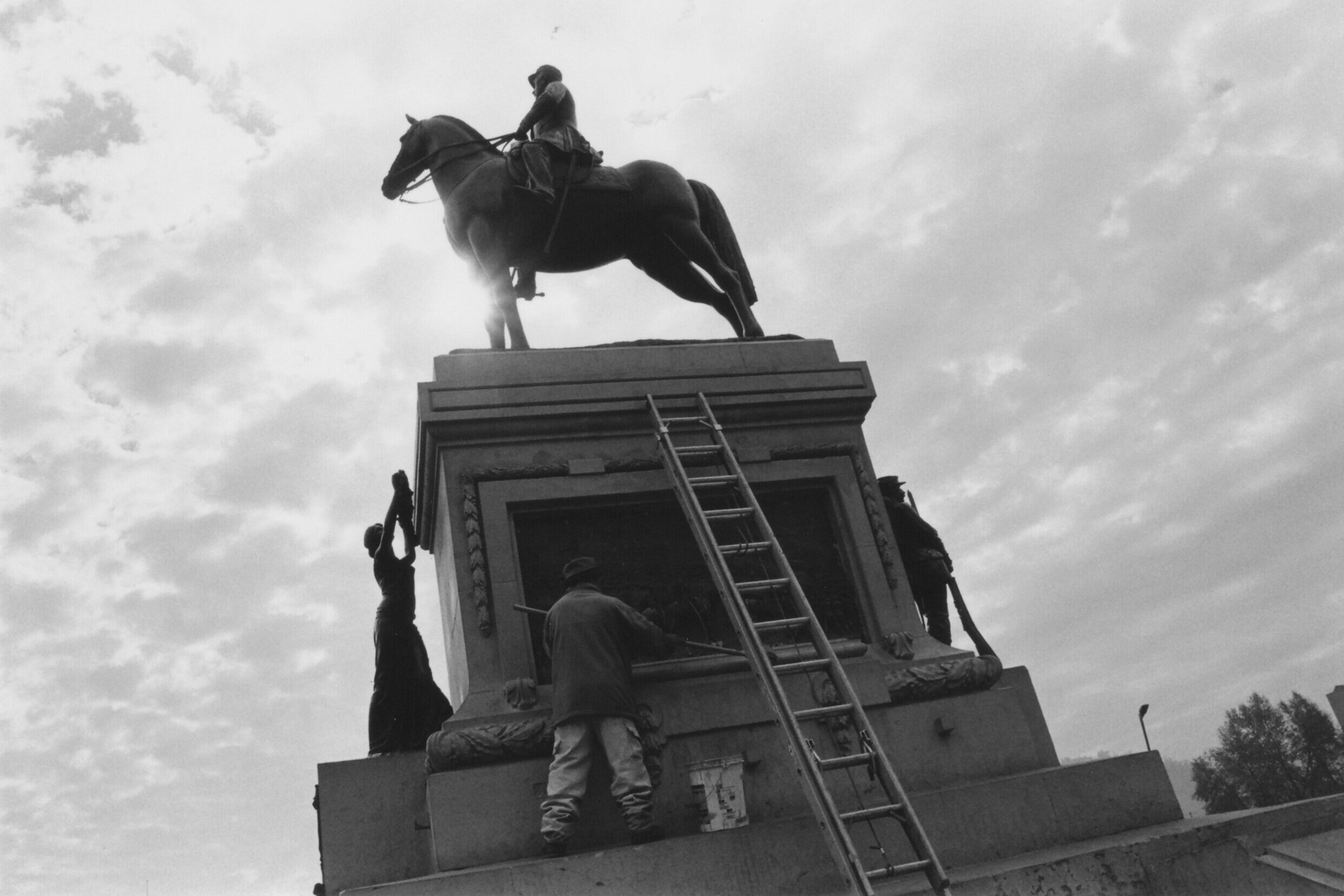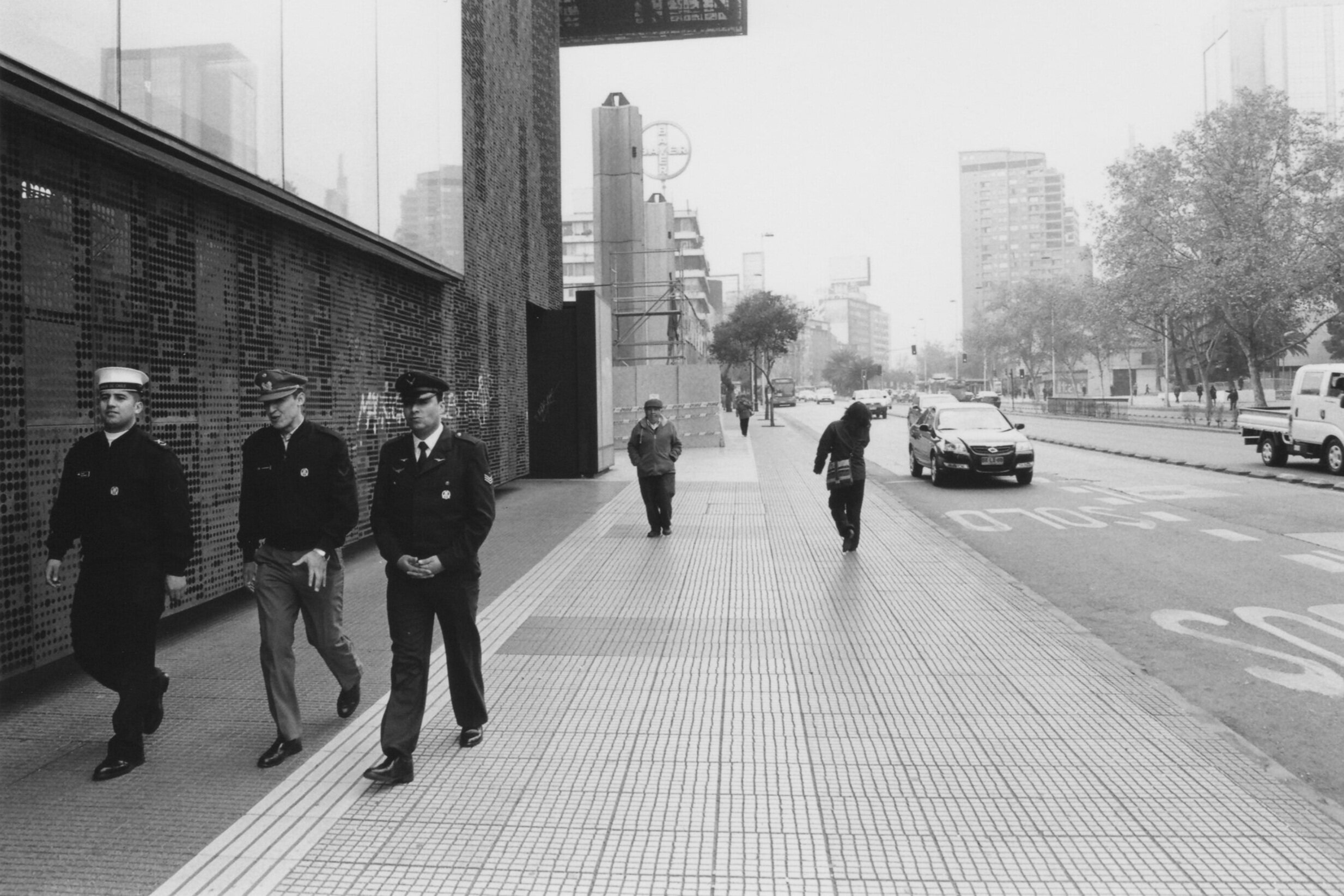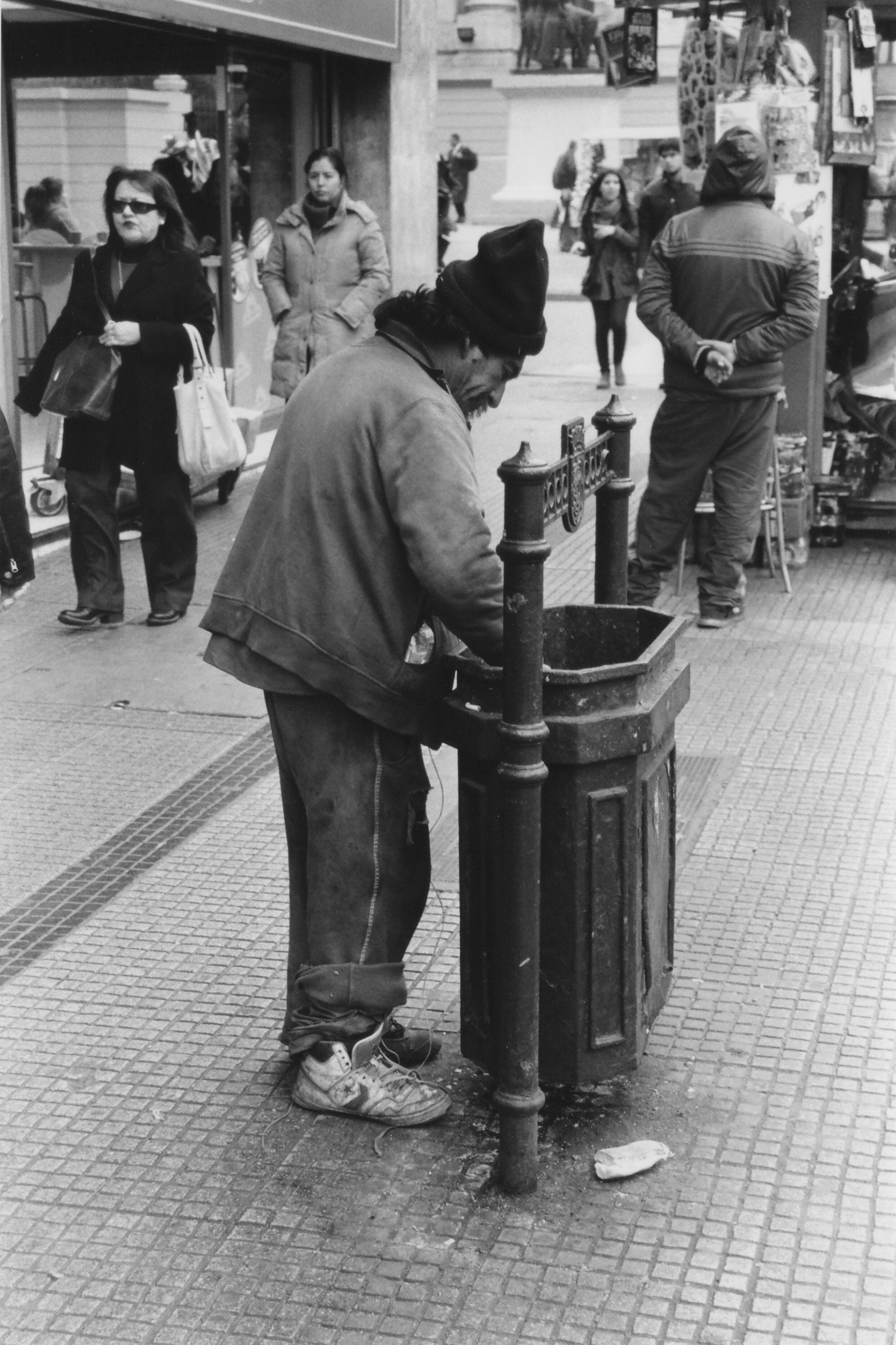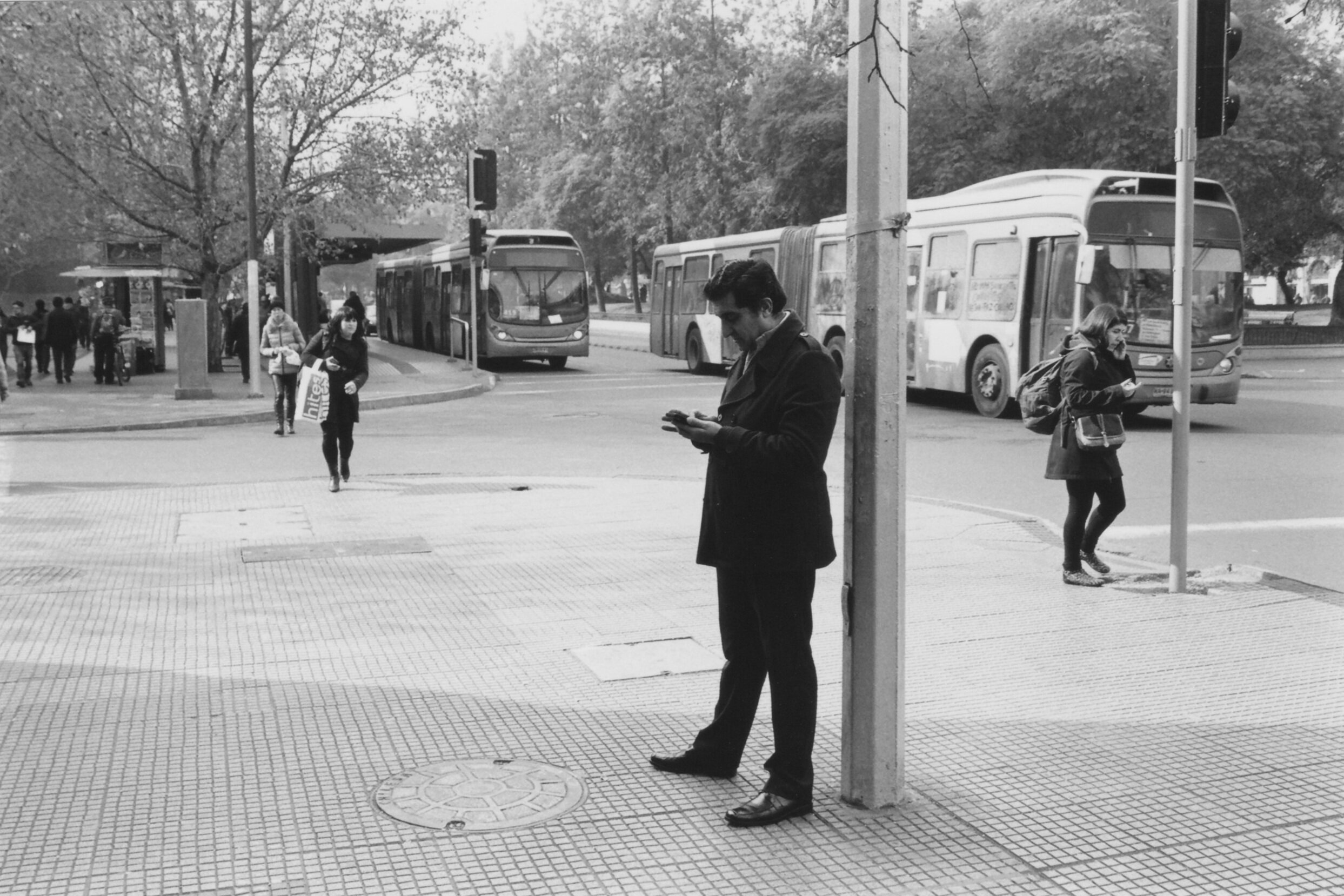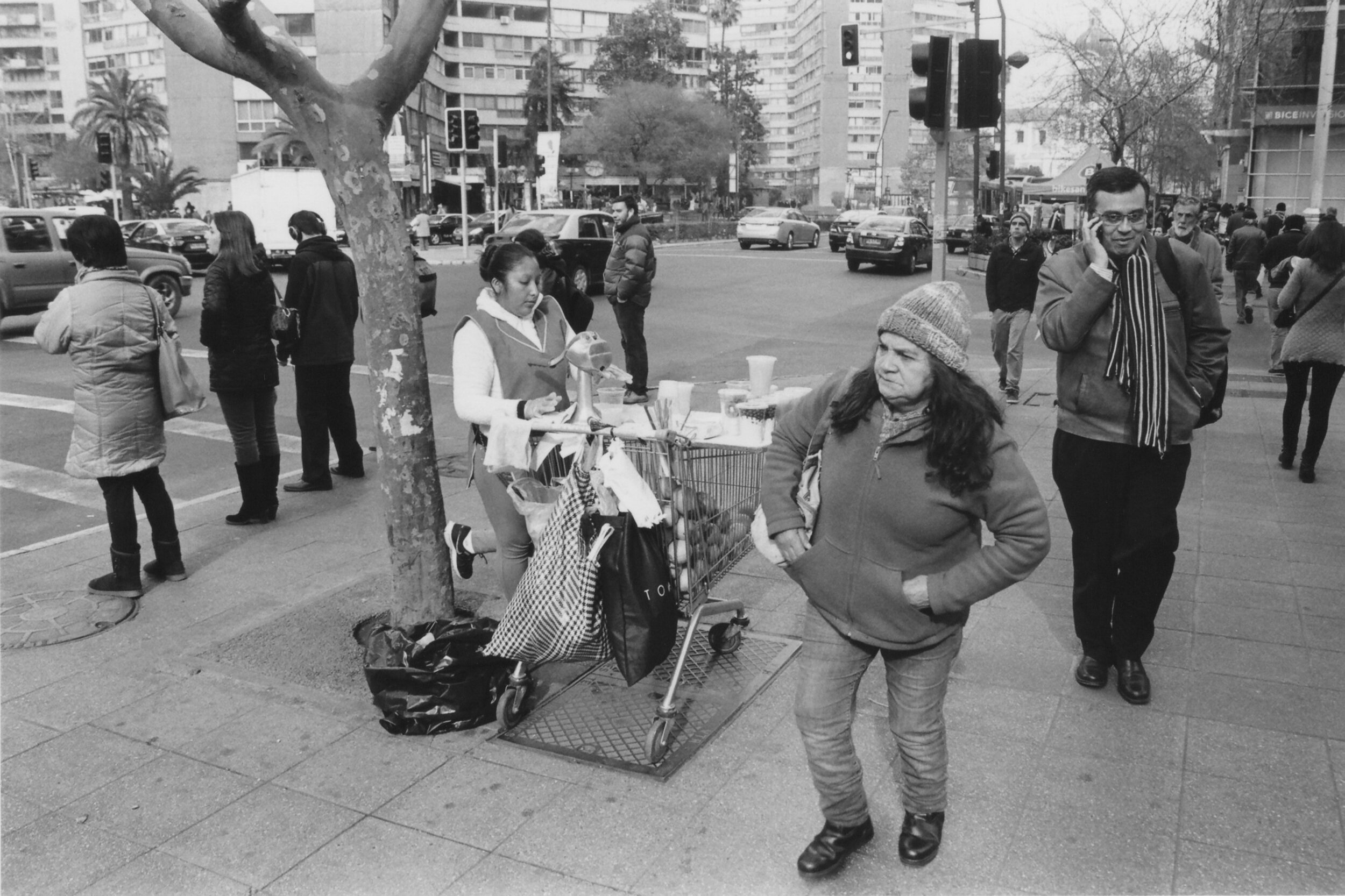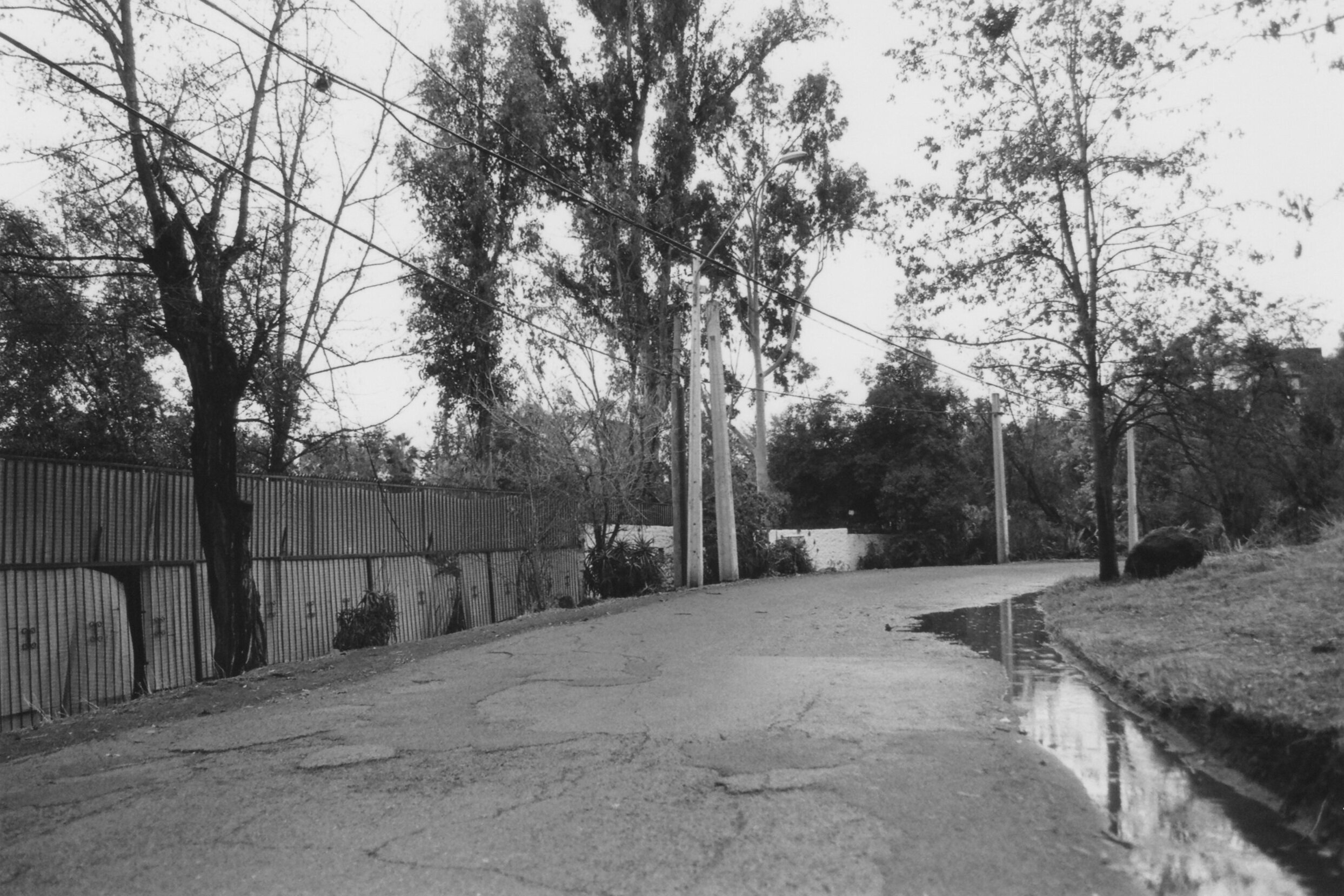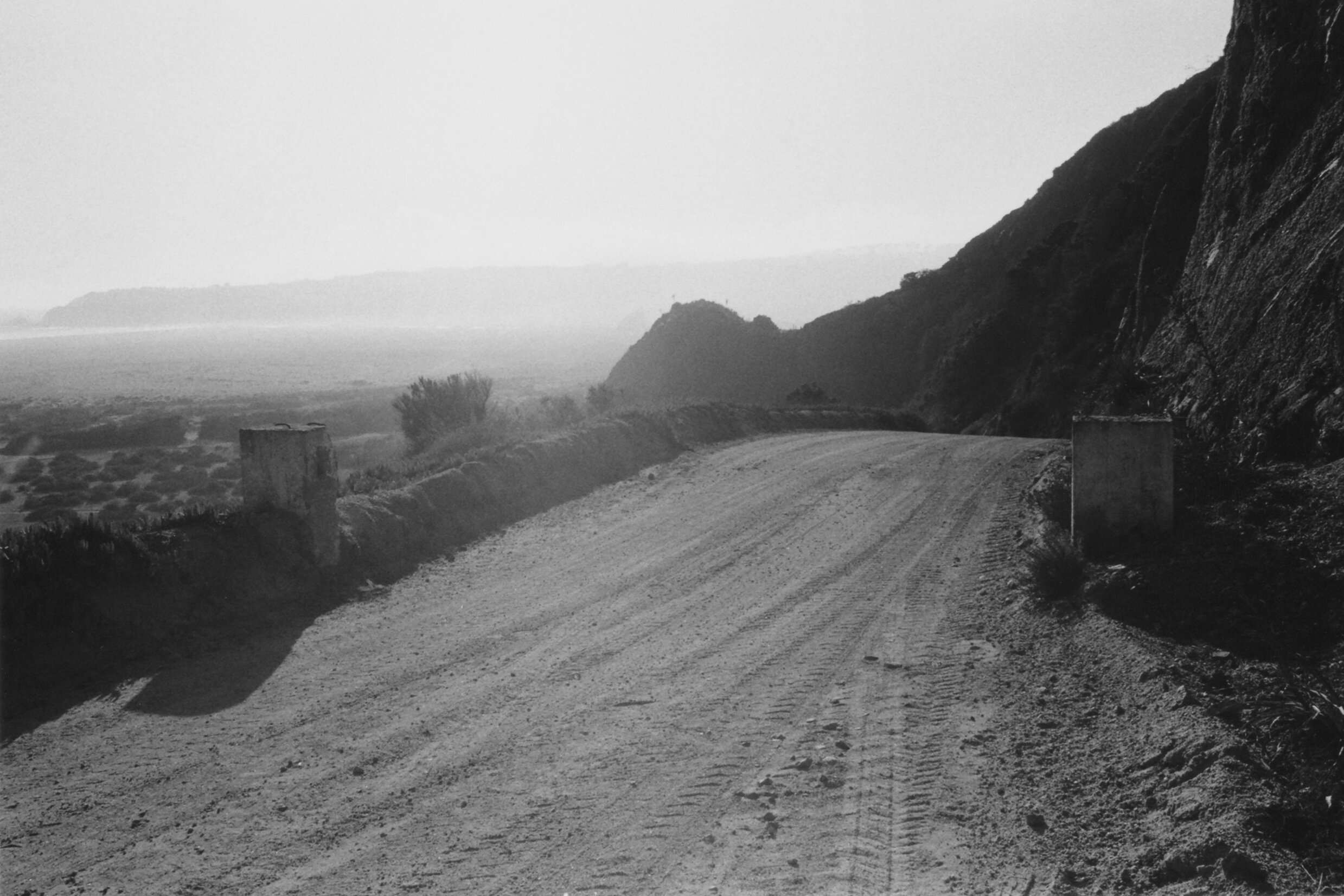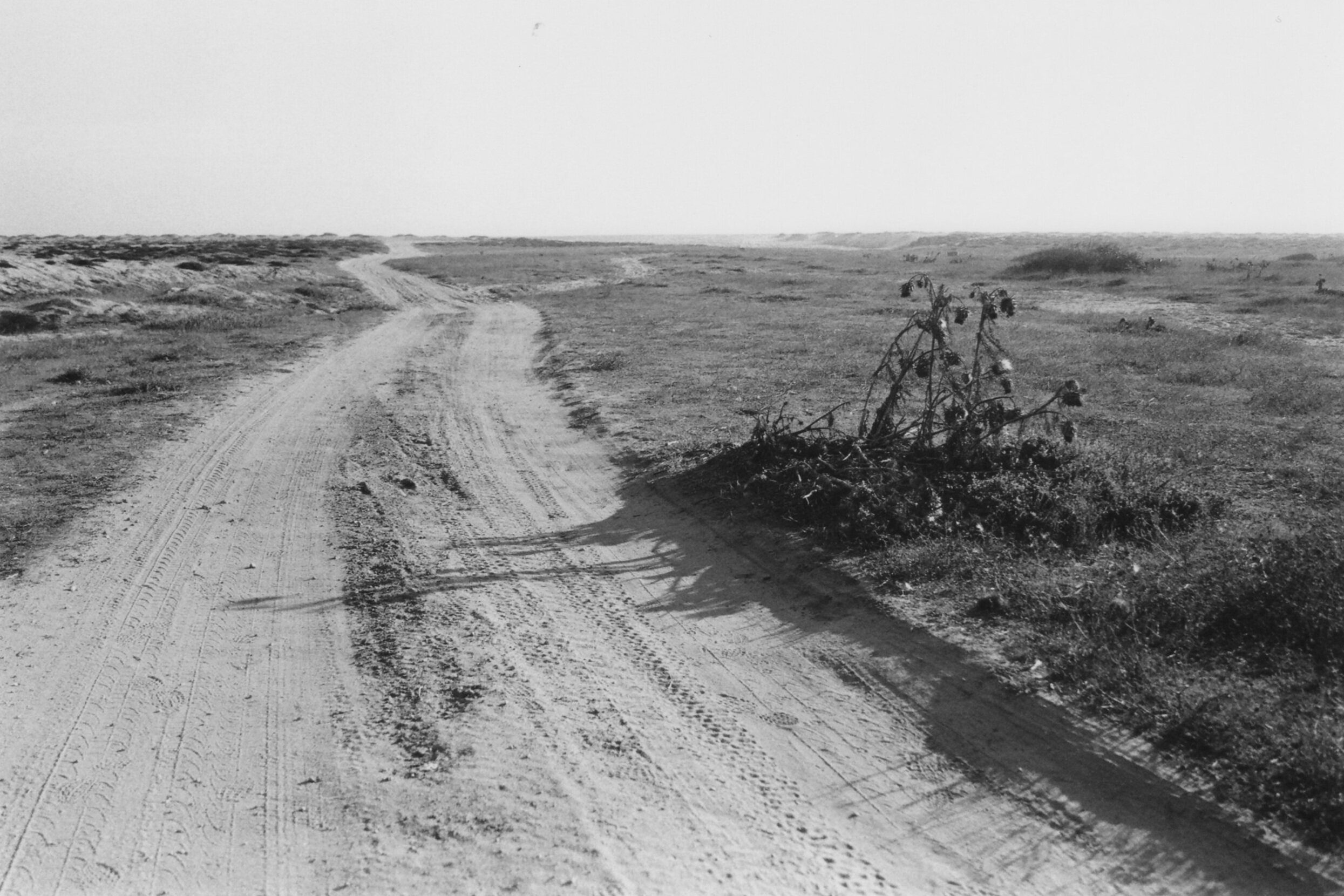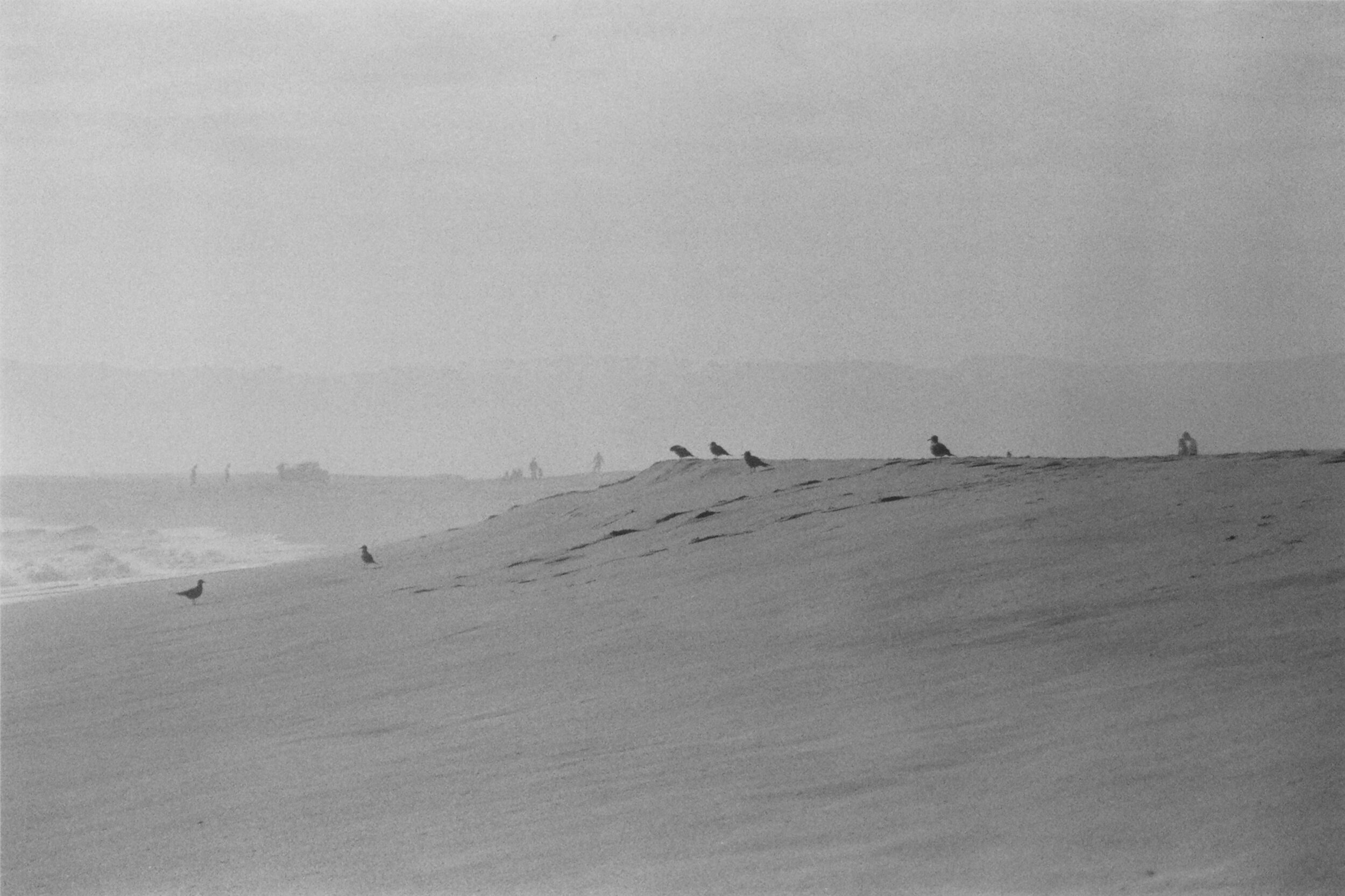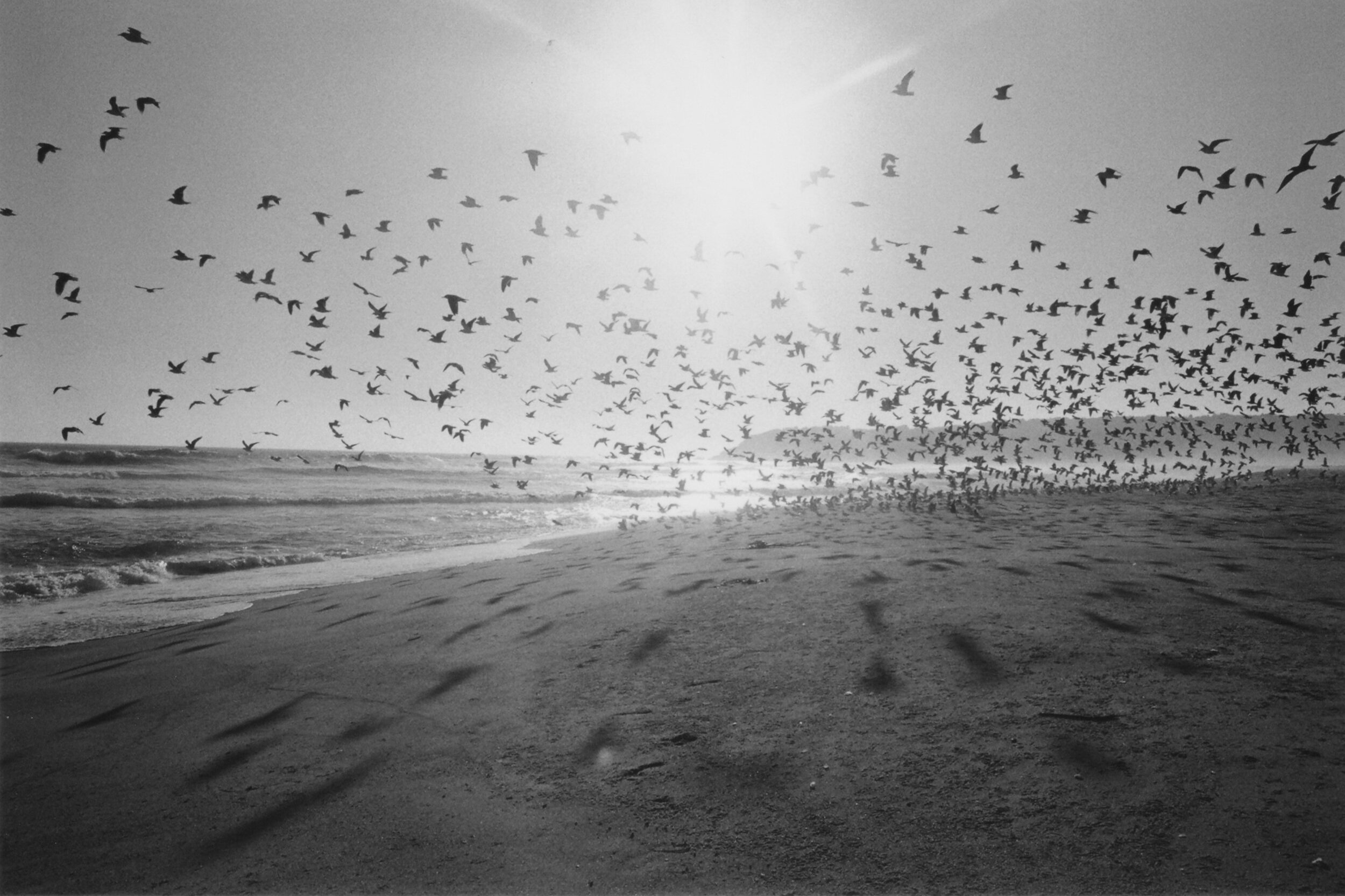Santiago to Algarrobo, Chile
Chile is often said to be one of Latin America’s most successful countries. Its economy has grown significantly in recent years, but this success has only been felt by a minority: Chile is the most unequal country in the world and faces a number of problems that have arisen from the brutal military dictatorship under Augusto Pinochet between 1973 and 1990.
This series of photographs comprises images of Chile’s smoggy capital, Santiago, juxtaposed with the tranquillity of the coast in Tunquén. It begins on Santiago’s riverbed, where the dwindling flow of mountain water is confined to a narrow avenue, leaving the rest of the expanse to mud and rubble. Running parallel above are several lanes of traffic, its smog sitting heavy in the bowl formed by Santiago’s surrounding mountains. In the background, the skyscraper Gran Torre Santiago stands alone, a reminder of Chile's uneven development and a symbol of the country's patriarchal culture.
With these images, captured on black and white 35mm film, I attempt to symbolise the shadow cast by Chile’s recent history of military rule and the present challenge of spiralling wealth disparity. There are three placed together that I believe emphasise this the most: an image of three military personnel; a wealthy woman passing a destitute man looking through a public bin; and a man browsing his smartphone, a sudden consumer trend that emerged in the two years since my previous visit.
The series below elaborates with an image of a quiet road in La Reina, a standalone suburban scene where, through the distance, there is an entrance to a house where one of thousands of politically motivated arrests during the dictatorship was made.
Santiago’s sometimes dystopian cityscape is counterbalanced by Chile’s extraordinary natural landscape, from the Atacama Desert in the north to Patagonia in the south. This separation from Chile's urban realities is represented in the concluding images by a beach in Algarrobo that, even in summer, has many times more birds than it does people.

